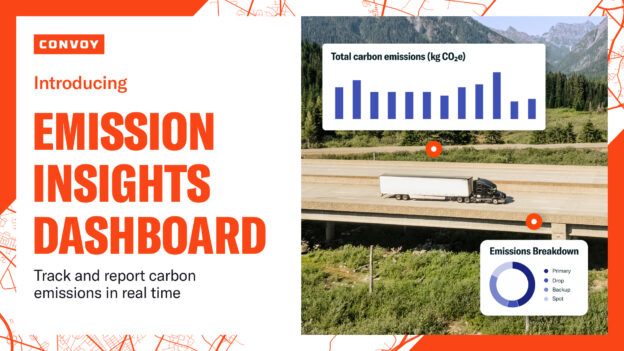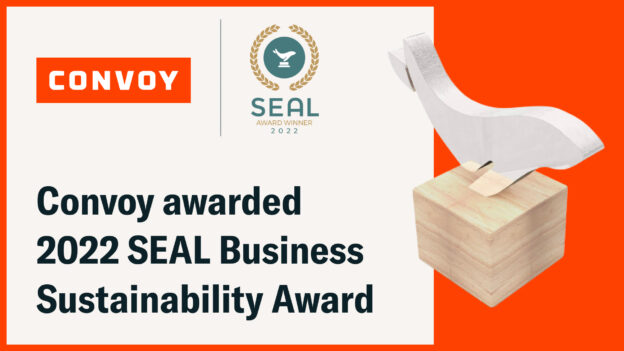A Case for Supplier Diversity in Trucking
Sustainability • Published on September 23, 2020

Major corporations are investing more resources than ever with diverse-owned businesses to improve their supply chains by creating programs that focus on diversity growth. Diversity in supply chains promote innovation by introducing new products and services while expanding the range of supply channels for goods and services. Corporations’ commitment to diverse supply chains creates an increase in competition on price and services between current and potential vendors, which creates new opportunities for business expansion. One of the programs that corporations are implementing into their businesses is known as a Supplier Diversity Program.
What is a Supplier Diversity Program?
A Supplier Diversity Program is a strategy that ensures a diverse supplier base in the procurement of goods and services for any business or organization. The program includes small and diverse-owned businesses to help improve supply costs through increased competition, product innovation, economics, and community health. Over 90% of Fortune 500 companies spend an average of $3 billion annually with diverse suppliers to improve their supply chain and help ensure inclusivity of businesses owned by minority individuals or groups that have been traditionally underrepresented. These groups consist of but not limited to:
- Minority Owned Businesses
- Women Owned Businesses
- People with Disabilities Owned Businesses
- Veteran and Service-Disabled Veteran Owned Business
- LGBTQ+ owned businesses
Why is Supplier Diversity Important?
Here are two key reasons why this program is important to the freight industry. 1) It meets the corporate social responsibility and sustainability guidelines for businesses that ship freight 2) The program promotes growth amongst diverse groups. It also unlocks new business opportunities for shippers and carriers.
A Corporate Social Responsibility is a self-regulating business model that helps a company be socially accountable not only to itself, but its stakeholders, and the public. A company will set actions in place that benefits both the company and their community through employee engagement, financial support, and volunteerism. Corporations are able to grow their profits while the community is directly involved with processes among the industry. Sustainability guidelines are used to create processes or systems that will help improve the environment, economy, and social equity. It’s the idea that not only should companies focus on improving and maintaining the natural resources on Earth, but also continue to improve the economic growth in their communities and promote social equality. These guidelines are not legally required of companies to follow, but the top companies around the world believe it is their moral obligation to society and future generations to create an environment where diversity amongst the supply chain will build a better world. Following these guidelines enforces corporations’ values as well as builds trust with their communities.
Encouraging diversity in the supply chain helps to create a more equitable world where diverse businesses can continue to grow and remain competitive in the industry. Many diverse businesses experience roadblocks that make it hard for them to succeed. Some of these roadblocks include access to resources and networking opportunities to grow their business. With Supplier Diversity Programs, diverse businesses are able to work with major corporations that will prioritize their needs in order to make them competitive in the supply chain. These programs create a partnership between diverse businesses and major companies that create cost-effective and innovative solutions that improve the supply chain. Supplier Diversity also creates job opportunities that increase wages and tax revenue in historically underserved communities. By creating more opportunities to partner with diverse businesses, corporations are able to increase their scale and efficiency. As diverse businesses continue to grow, the nation’s economy as a whole will continue to make positive strides.
What are the requirements to become a diverse certified carrier and how can a carrier apply for certification?
In order to be eligible for a diverse certification, your business has to be at least 51% owned, operated, and controlled by a person of a diverse background listed previously above (Minority,Women,Veteran, Person with a Disability, LGBTQ+, Small Business, etc.). That person also has to be a U.S. citizen.
If the carrier fits in the qualified criteria that has been stated, then the carrier will have to go through a certification process by a 3rd party agency to confirm eligibility for the diverse certificate. The 3rd Party agencies that a carrier can get certified through are as follows but not limited to:
- Women’s Business Enterprises National Council (WBENC)
- National Minority Supplier Development Council (NMSDC)
- National Veteran-Owned Business Association (NaVOBA)
- Small Business Administration (SBA)
- National Gay & Lesbian Chamber of Commerce (NGLCC)
- Disability:IN
Once the carrier receives their diversity certificate, they are eligible for Convoy’s Supplier Diversity Program.
What are the benefits for Carriers joining Convoy’s Supplier Diversity Program?
It’s free to join the program and the benefits are effective immediately once registration is completed. Registered certified carriers gain access to more business, hauling for major shippers in the freight industry such as Procter & Gamble, Unilever, McCormick, Starbucks and many more.
Being a certified diverse carrier with Convoy grants more access to more loads daily, which creates more revenue for the carrier. They are able to have access to forums that will assist with promoting their business nationwide as well as be recognized through awards that will further enhance their growth.
Where do carriers sign up?
Interested in joining Convoy’s Supplier Diversity Program? Please check out https://convoy.com/supplier-diversity/ and click “Register today” to complete the application in less than 5 minutes. Once the application has been completed, a Convoy associate will reach out to provide additional information.



